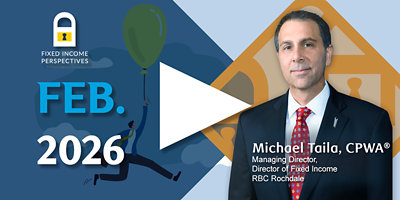-
Market Perspectives
We've Got A lot of Ground to Cover
May 2023
- Filename
- Market Perspectives Slides May 2023.pdf
- Format
- application/pdf
TRANSCRIPT
This month, I'll provide an update on recent market activity, the narrow breadth of the rally-- in other words, what's driving the S&P 500-- earnings, and finally, the current front page topic-- the debt ceiling. Stocks have been mostly range bound since we last spoke, as investors position themselves, hoping cautiously for positive news out of Washington on the debt ceiling. The S&P 500, Russell 1000 and 2000, and EAFE indices are all more or less where they were a month ago, and perhaps a little bit up. The Dow and dividend stocks continue to trail, while growth-heavy NASDAQ continues to lead.
Yields across the Treasury curve moved up the past month. Growth stocks continue to outpace other areas of the market and the breadth continues to be narrow, which is less than ideal. Through the 22, the S&P 500 was up 9 and 1/2%, which is a nice move for five months. On the surface, it appears U.S. large stocks are having a strong year. A closer examination, however, reveals narrow leadership.
If you remove the tech titans from the year-to-date return-- those are Amazon, Alphabet, Apple, Meta, Microsoft, Nvidia, and Tesla-- the return on the rest of the S&P 500 is a less-impressive 1.2%, or less than the Russell 2000 year to date. Healthy bull markets traditionally exhibit broader market participation. Earnings season is just about over and almost-final results indicate that earnings were generally higher than the reduced level of expectations. Management comments varied, but notably absent was forward-looking optimism. While data showed that 78% of firms surpassed forecasts, it is less impressive than it sounds, given analysts had slashed their expectations before earnings season kicked off.
This was the second straight quarter of earnings declines for corporate America as measured by the S&P 500 Ex-Energy. If measured with energy, the S&P 500 earnings would show five months of earnings decline. Bearish earnings forecasts now center on the May to June period, for which a 7.3% profit slump is shown in consensus estimates. City National Rochdale retains our below-consensus outlook for 2023 earnings growth.
Moving to the front-burner topic of the debt ceiling. A number of strategists argue that markets are too complacent about debt ceiling risk. It is somewhat surprising the equity markets haven't exhibited more anxiety. It's as if they're whistling past the debt ceiling issue. We continue to think a default is unlikely and that a deal will be reached. Estimates of the so-called x-date vary, the date which the federal government exhausts cash reserves. Secretary Yellen thinks it's in early June and corporate tax receipts are due on June 15. That could extend the Treasury's ability to make debt payments.
Again, we think the worst scenarios are unlikely. Nonetheless, nerves and markets may become more frayed the longer a resolution is delayed.
We continue to advise caution and preparation for a probable mild recession. Equity valuations are higher given the recent run, and volatility is likely if the debt ceiling impasse persists. The taxable bond curve remains inverted, with shorter-term yields now the most attractive they've been in 15 years, but it's not time yet to add exposure to longer-maturity bonds. Tax-exempt bond valuations are becoming more attractive, and relatively longer portfolios can be built there. U.S. high-yield bonds are attractive still, with yields above 8% having driven returns and limited volatility, supporting our overweight recommendation.
Stay Informed.
Get our Insights delivered straight to your inbox.
Put our insights to work for you.
If you have a client with more than $1 million in investable assets and want to find out about the benefits of our intelligently personalized portfolio management, speak with an investment consultant near you today.
If you’re a high-net-worth client who's interested in adding an experienced investment manager to your financial team, learn more about working with us here.
.jpg)


